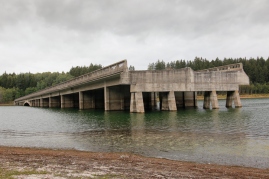The Market for “Lemons” is a seminal economics paper by Nobel Prize winner George Akerlof about used cars. Imagine that there are only two kinds of used cars: quality used cars and “lemons”, i.e., cars that, despite outward appearances, are in poor condition. Quality cars are worth $2000, but lemons are worth just $1000. Sellers know whether their cars are lemons or non-lemons — but buyers have no way of determining whether a car is a lemon or non-lemon. As a buyer, what would you offer for a given used car?
You would probably be hesitant to offer significantly more than $1000, since you would regret spending more than $1000 only to find you had bought a lemon. On the other hand, as a seller, you would refuse to sell a non-lemon for a mere $1000, since you know that quality used cars are worth $2000. As a result, due to “information asymmetry”, the only transactions that take place are those involving lemons!
Sometimes, the market for start-ups is a bit like the market for used cars.
